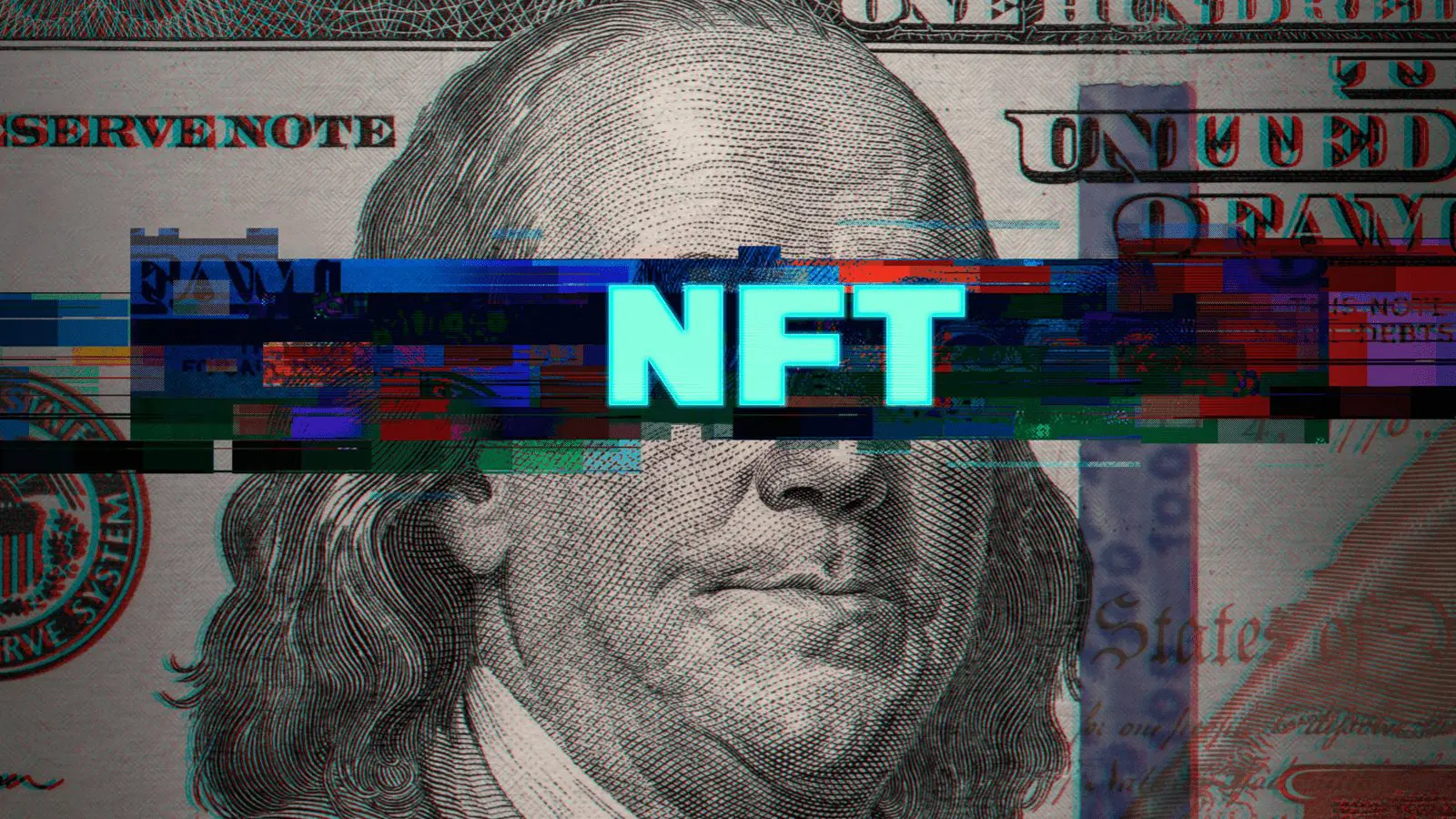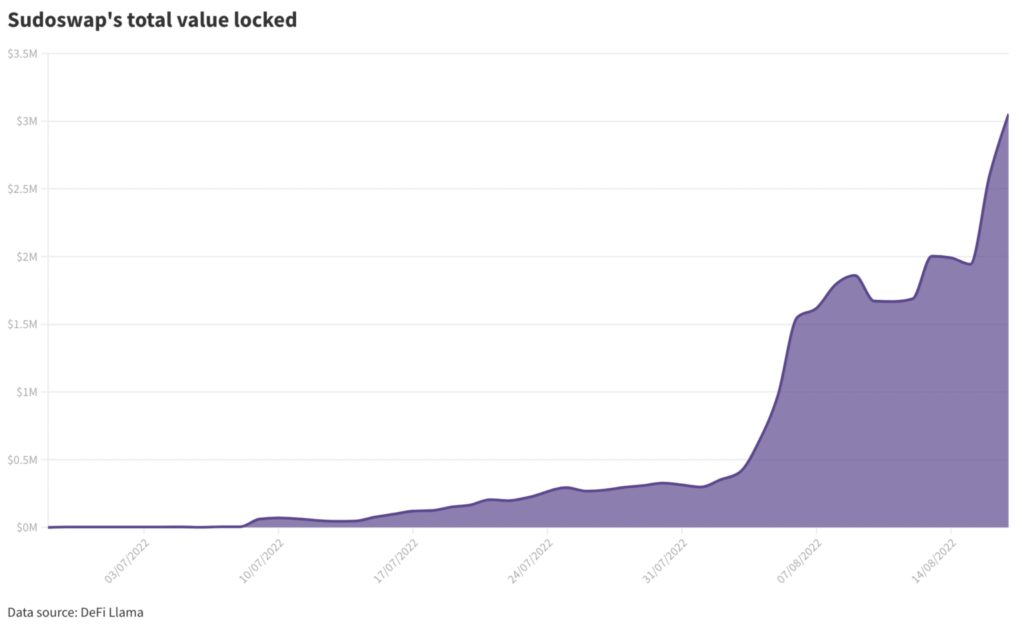Sudoswap erupts as NFT Traders capitalize on royalty-free sales

Sudoswap, a decentralized exchange, has joined the NFT ecosystem, but its royalty-free model means traders can avoid creators.
For nearly its entire existence, the ecosystem has relied on centralized marketplaces, most notably OpenSea. Sudoswap, a decentralized alternative, is quickly gaining traction.
Sudoswap aims to disrupt NFT trading with automated market-making (AMM) algorithms and liquidity pools, similar to Uniswap, the leading Ethereum decentralized exchange (DEX).
NFT markets have long been plagued by a lack of liquidity and slippage. A CryptoPunk may sell for $100,000 one day but not receive similar offers for weeks or months, leaving investors perplexed as to how much it is worth.
Sudoswap’s own brand of AMM enables NFT traders to buy and sell without having to wait for an offer. Sellers contribute their products.
NFT traders are into the idea
Each NFT listing on Sudoswap is essentially its own pool, and each seller is solely responsible for providing liquidity to those pools. Users can configure NFT values and other pool parameters, such as selling NFTs on a bonding curve that gradually increases as pieces are purchased.
Sudoswap allows traders to buy and sell NFTs across all pools quickly, allowing for more immediate price discovery and reducing the risk of being stuck with an illiquid asset.
NFT traders appear to be on board with the experiment; according to DeFi Llama data, Sudoswap’s total value locked inside its liquidity pools has increased 2,400% in the last month, from $120,000 to $3 million.
In total, the platform’s AMM has facilitated trades of over 60,000 NFTs across nearly 29,000 transactions.

Over the same time period, OpenSea processed approximately $800 million in trades. So Sudoswap has a long way to go before catching up to the big dog.
The power of Sudoswap, however, is that it eliminates pesky intermediaries, for better or worse. Copyright strikes frequently force centralized NFT platforms to halt auctions.
In fact, when it banned “flipped” Bored Ape Yacht Club (BAYC) collections, OpenSea sparked a debate about the fine line between art, freedom of expression, and plagiarism. As is its right, it has done the same with overtly offensive NFTs.
Sudoswap’s front-end web app could perform similar filtering, mirroring that of major DeFi protocols in the aftermath of the Tornado Cash sanctions.
Royalty-free NFT trading on Sudoswap could undermine artists
Sudoswap does not pay creators royalties on trades. Unlike OpenSea, which pays NFT issuers an average of 5% on secondary sales while keeping an additional 2.5% for itself, Sudoswap charges only 0.5 percent on trades, funds it sends to its treasury, not creators.
The platform’s low fees, combined with its liquidity pool structure, have made it appealing to traders, but whether the creators and artists feel the same way is debatable.
Although the majority of revenues come from initial sales, royalty payments on secondary trades have long been one of the NFT ecosystem’s primary selling points.
And, in the case of industry titans like Yuga Labs, they certainly don’t hurt. The floor price for its BAYC tokens is currently 77 ETH ($145,000), and 2.5% royalties means it would net at minimum around $3,600 per trade.
Over the past 30 days, 368 BAYC trades have been recorded, according to CryptoSlam. So, the back-of-the-napkin math works out to be $1.3 million in BAYC royalties for Yuga Labs over the past month alone. (Yuga Labs declined to comment for the purposes of this article.)

“I haven’t seen many individual artists or creators opt into Sudoswap yet,” Derek Edward Schloss, co-founder of FlamingoDAO, told Blockworks.
“I think most of the volume so far has been NFT owners creating their own pools, bypassing the artist and creator entirely,” he said.
One artist Blockworks spoke to said they wouldn’t be phased if the entire ecosystem adopted royalty-free trading, however. They’ve sold dozens of items on which they forgot to set royalties and aren’t terribly upset whenever one of them re-sells.
If Sudoswap and its royalty-free trading truly catches on, artists will likely need to adjust how they price their work — making mints more expensive or simply focusing on moving volume themselves, Jake Stott, CEO of Web3 creative agency Hype, told Blockworks.
“My inkling is that royalty-free marketplaces will prove to be better-suited for NFT collections by big brands, like the Coca-Colas and NBA Top Shots of the world,” Stott said. “Unlike artists, brands might be keener on forgoing royalties as NFTs can be more of a community and brand building tool for them — and not a direct stream of revenue.”


